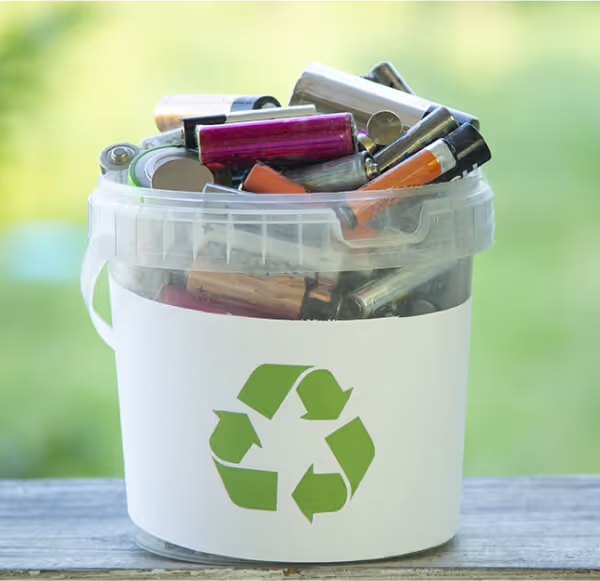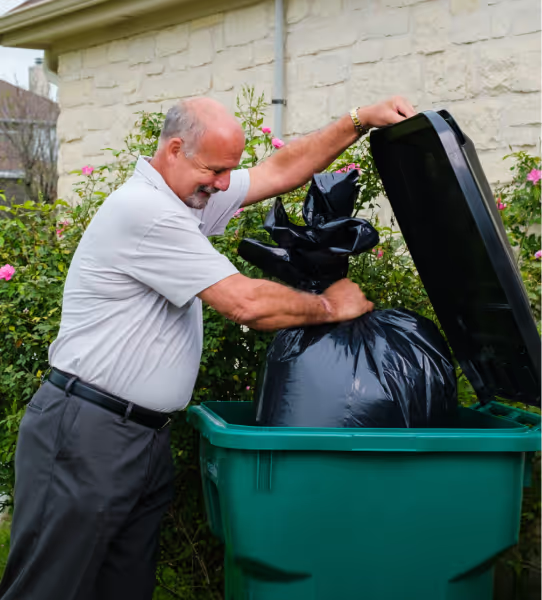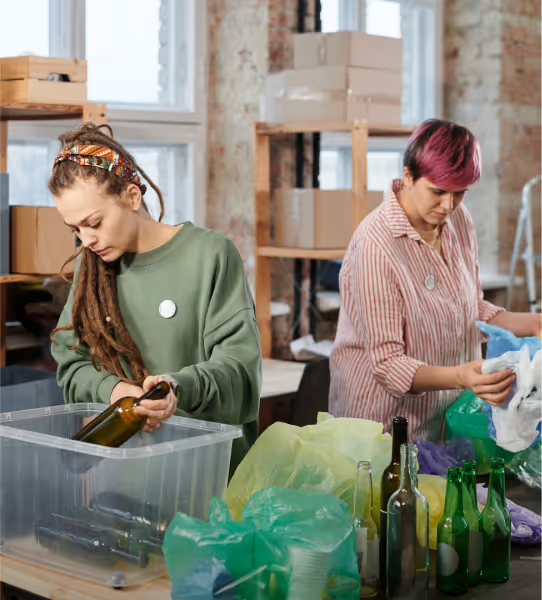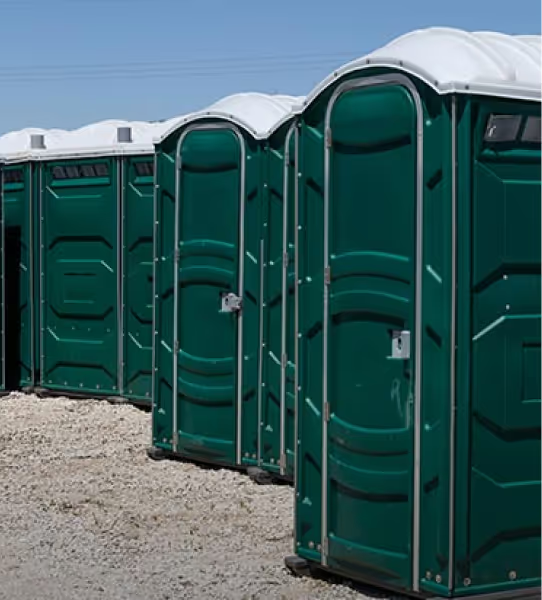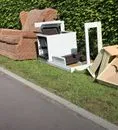
Recycling Guide
Help us keep the Magic Valley clean and sustainable by recycling right. At PSI Environmental Systems, we make it easy to understand what belongs in your recycling bin—and what doesn’t. From cardboard and plastics to special items like electronics and textiles, our clear guidelines help you make the most of your recycling efforts.
PSI Environmental Recycling Services
Our Offerings Include
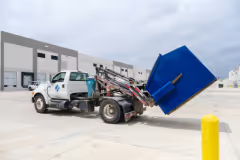
Single or multiple-dumpster collection service
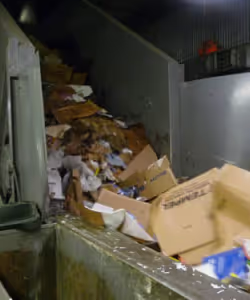
Separated or combined recyclables collection programs
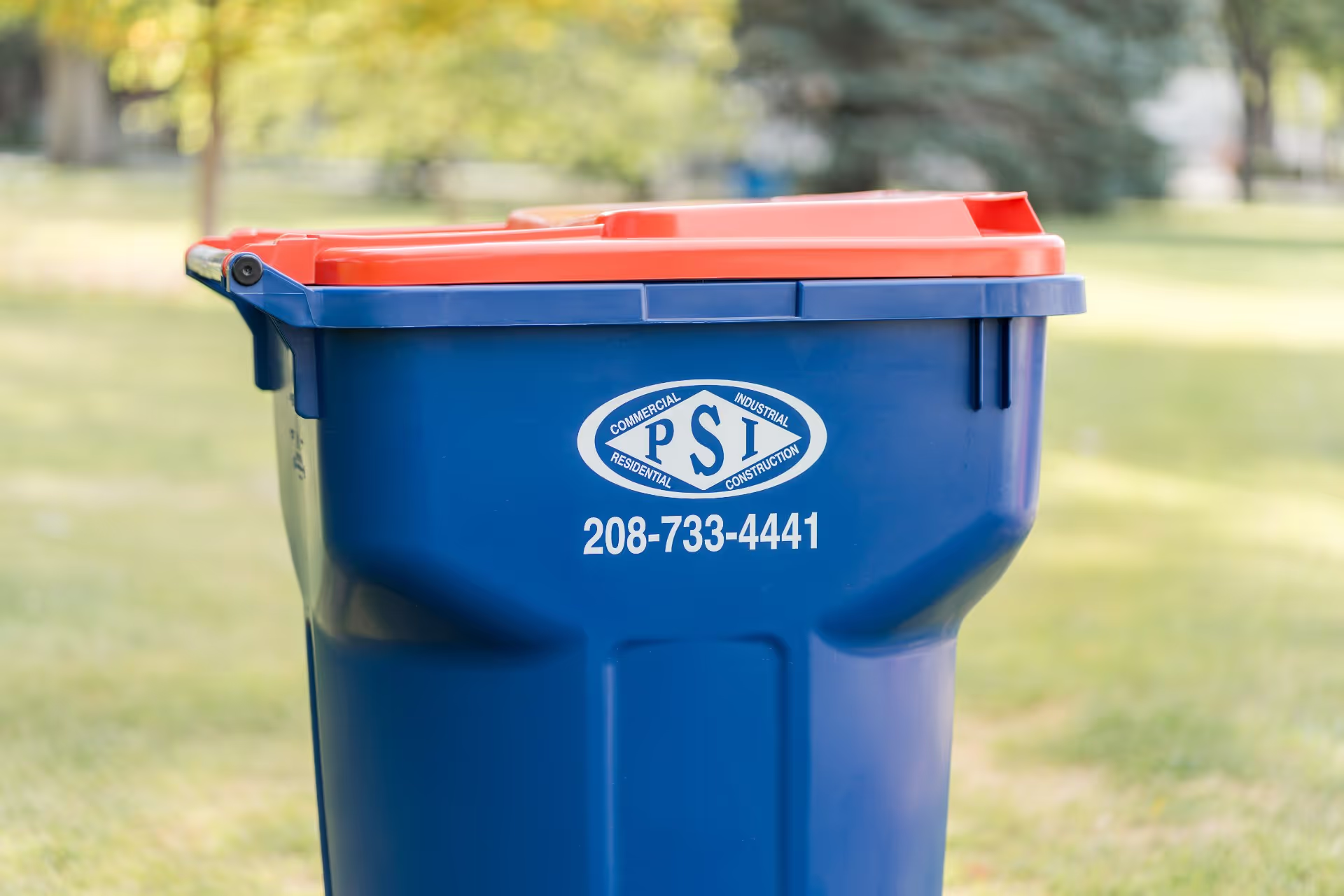
Recycling cardboard, aluminum and tin
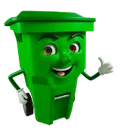
Our Disposal Guide
What Residential Items Can’t Be Recycled via Curbside Collection
Thank you! Your submission has been received!
Oops! Something went wrong while submitting the form.
Unacceptable Items
Items
- Propane canisters
- Flares
- Needles
- Electronics
- Flammable liquids
- Batteries for e-cigarettes
- Helium tanks
- Lighters and matches
- Knives
- Household batteries
- Butane canisters
- Ceramic plant pots
- Bear spray
- Paint
- Ammunition
- Straws
Plastic containers
- Containers for motor oil, vehicle lubricant or antifreeze products
- Garden hoses
- Packaging labeled biodegradable or compostable
- Plastic string or rope
- Microwavable bowls with metal rims
- Plastic paint cans
- Plastic wrap
- Pails for lubricants and oils
- Plastic or foil lids from coffee and tea pods
- Liquid-absorbing pads, e.g., in trays of meat, poultry, fish, etc.
- Lawn edging, tarps, plastic furniture or toys
- Plastic blister packs e.g. plastic/foil protective packaging for chewing gum and pills
Steel containers
- Steel paint cans
- Coat hangers (return to dry cleaners)
- Pots, pans and baking trays
- Propane cylinders
- Metal toys
- Appliances
- Metal hardware or other scrap metal
- Wiring or metal cords, extension cords
Misc. flexible plastic packaging
- Plastic squeeze tubes
- Plastic-lined paper
- Cellophane wrap
- Plastic strapping
- 6-pack ring
- Biodegradable plastic
- PVC/vinyl
- Squishy foam
- Plastic blister packs e.g. plastic/foil protective packaging for chewing gum and pills
Paper packaging/cardboard
- Cardboard boxes with wax coating
- Paper bags with multiple layers that include a foil layer
- Paper bags with a plastic layer
- Paper towels, napkins
- Tissues
Aluminum containers
- Spray paint cans
- Aerosol cans with any contents remaining
- Propane cylinders
- Foil-lined cardboard take-out containers and lids
Glass bottles & jars
- Drinking glasses or dishes, cookware
- Whole or broken window glass or mirrors
- Ceramic products
- Light bulbs and light fixtures
Foam packaging
- Liquid-absorbing pads used in trays for meat, poultry, fish, etc.
- Labels, tape, paper and cardboard on foam packaging
- Foam peanuts, packing chips, or noodles
- Blue or pink foam board insulation
- Squishy or flexible foam
- Furniture cushions
Plastics/Overwrap
- Plastic bottles or containers
- Plastic cups or straws
- Kitchen stretch wrap
- Packaging labeled biodegradable or compostable
- Lumber or construction wrap
- Garbage bags/other plastic bags
Paper
- Hardcover or paperback books (donate or sell)
- Ribbons or bows
- Musical greeting cards with batteries
- Rubber bands
Battery Disposal
Incorrect Battery Disposal Can Cause Fires
Common household items seem harmless, however, the batteries in them pose risks when disposed into regular garbage or recycling containers because of their highly flammable nature.

Remove the batteries
Check the electronic devices you need to dispose of. If possible, remove the batteries. If not, bring the whole device to the drop off location.
Store batteries in a safe place
Store batteries in non-metallic containers (plastic, cardboard, or glass) that do not conduct electricity if there is a spark.
Find your local drop off
Find a local electronic disposal store, or find a drop off location near you.
